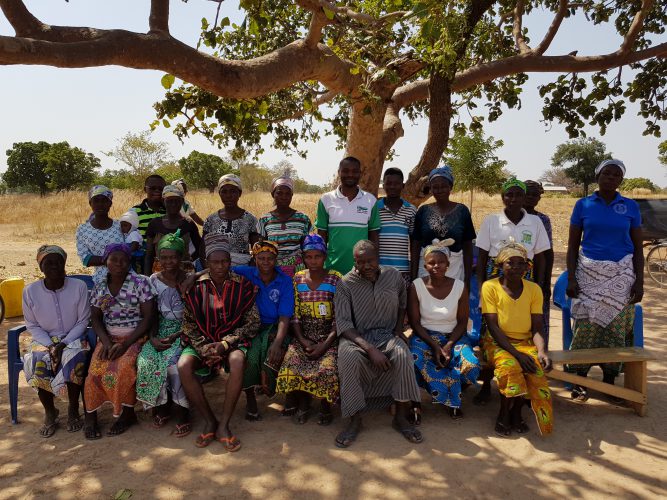Shea production is a growing sector with its produce (shea butter) having great benefit to health, skin and hair. Shea butter is an extract from the nuts of the Karite tree fruits. This tree grows majorly in Africa and has been used for various health and body remedies for years. It is produced by crushing the nuts through a machine. These crushed nuts are further put out under the sun to dry, and finally go through a process giving it the creamy shea-butter look.



The Nakolo Village Tree Enterprise Group, a women’s group located in Paga, is one of many groups dealing in shea butter production in Ghana. The group is made up of 90 members in the community, ranging from age 25-45, with majority having only a primary school certificate. They depend greatly on the Forest and Farm Organisation (FFPO) assisting them, for information on market availability and development, and these information is further passed round the group and village members through meetings (held in the market centre) announced by town criers. The publicity of this group’s product is low, which makes them a small-market group. Shea production is one source of livelihood for the people amongst others, and to this, a great support should be given to this group to help improve their livelihood.
An interest was taken in the women’s group and their products, after a field mission to the community under the Forest and Farm Facility programme’s (FFF) scoping stage. The FFF programme has been set to strengthen and support the Forest and Farm Producer Organisations (FFPOs) to be primary change agents of ‘climate resilient landscapes and improved livelihoods.’ The programme will contribute to the SDGs with the set outcomes covering; inclusive governance and cross-sectorial collaboration. It will also contribute to increased entrepreneurship, equal access to markets and finance, improved delivery of landscape scale mitigation and integration with inclusive livelihood approaches. Thus, the programme has an impact on the indigenous and grassroots, in the context of improving their livelihood, which covers all aspects of their lives.
Way Forward
From the visit, it was gathered that as the group depends solely on the FFPO, they will need assistance in building their capacity and independence as regards to their source of information and capability. At the same time, it will be necessary to assist them in widening their market base, which will add to improving the livelihood of the women. Also, educating them on the best way to package their business will help improve their market grounds, and also further improve their livelihood.
Finally, this women’s group has great potential with regards to entrepreneurship and good shea production for sales and distribution. They work hard and need to benefit greatly from it, for themselves and their families.
Uloma Mezie-Osuocha is the Communication for Development intern for the UN Food and Agriculture Organization’s Regional Office for Africa in Ghana, working with the Communication for Development team on various project, significantly the Forest and Farm Facility programme. She has an MSc Communication for Development from University of Reading and a B.A History and International Relations from Veritas University Nigeria. She strives to build a career in development sector to help in see the change she envisions, in the world.

